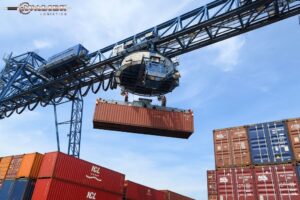Navigating Landed Costs in Freight Forwarding: A Guide by Cavalier Logistics Pvt. Ltd.
17 Apr, 2024
Navigating Landed Costs in Freight Forwarding: A Guide by Cavalier Logistics Pvt. Ltd.
In the world of international trade and logistics, understanding the concept of landed costs is paramount. For businesses involved in importing or exporting goods, grasping the intricacies of landed costs can make a significant difference in decision-making and profitability. In this comprehensive guide, we'll delve into the definition, provide examples, and offer an analysis of landed costs in freight forwarding, brought to you by Cavalier Logistics Pvt. Ltd.
What are Landed Costs
Landed costs refer to the total cost of a product once it has arrived at the buyer's doorstep. It encompasses not only the initial purchase price but also all additional costs incurred during the procurement process, such as shipping, customs duties, taxes, insurance, and handling fees. Essentially, landed costs provide a comprehensive view of the total investment required to acquire a product and bring it to its final destination.
Example of Landed Costs:
Let's illustrate this concept with an example:
Imagine Cavalier Logistics Pvt. Ltd. is importing a shipment of electronic goods from China to the United States. The breakdown of landed costs for this shipment might look like this:
1. Product Cost: $10,0002. Shipping Charges: $1,5003. Customs Duties: $1,2004. Taxes (e.g., VAT, GST): $8005. Insurance: $3006. Handling Fees: $200
Total Landed Costs = $10,000 + $1,500 + $1,200 + $800 + $300 + $200 = $14,000
In this scenario, the landed costs of the shipment amount to $14,000, which is significantly higher than the initial purchase price of $10,000.
Importance of Analyzing Landed Costs in Freight Forwarding:
Analyzing landed costs is crucial for several reasons:
1. Accurate Costing: By considering all expenses associated with procuring goods, businesses can accurately determine the true cost of each product, enabling better pricing strategies and budgeting decisions.
2. Profitability Assessment: Understanding landed costs allows businesses to assess the profitability of importing/exporting specific products or entering new markets. It helps in evaluating whether the potential profit margins justify the investment.
3. Supply Chain Optimization: Analyzing landed costs can reveal opportunities for optimizing the supply chain. By identifying areas of high cost or inefficiency, businesses can streamline processes, negotiate better terms with suppliers, or explore alternative transportation routes.
4. Compliance and Risk Management: Landed costs include customs duties, taxes, and other regulatory fees. By understanding these costs upfront, businesses can ensure compliance with international trade regulations and mitigate the risk of unexpected expenses or delays.
5. Decision-Making: Armed with comprehensive cost data, businesses can make informed decisions regarding sourcing strategies, inventory management, pricing adjustments, and customer segmentation.
Conclusion:
In the complex world of international trade, understanding and analyzing landed costs is essential for businesses seeking to operate profitably and competitively. By partnering with experienced freight forwarders like Cavalier Logistics Pvt. Ltd., companies can leverage expertise and industry insights to navigate the intricacies of landed costs effectively. With a clear understanding of the total investment required to acquire and deliver goods, businesses can optimize their supply chains, maximize profitability, and stay ahead in today's global marketplace.
Posted by :Cavalier Logistics Pvt. Ltd


